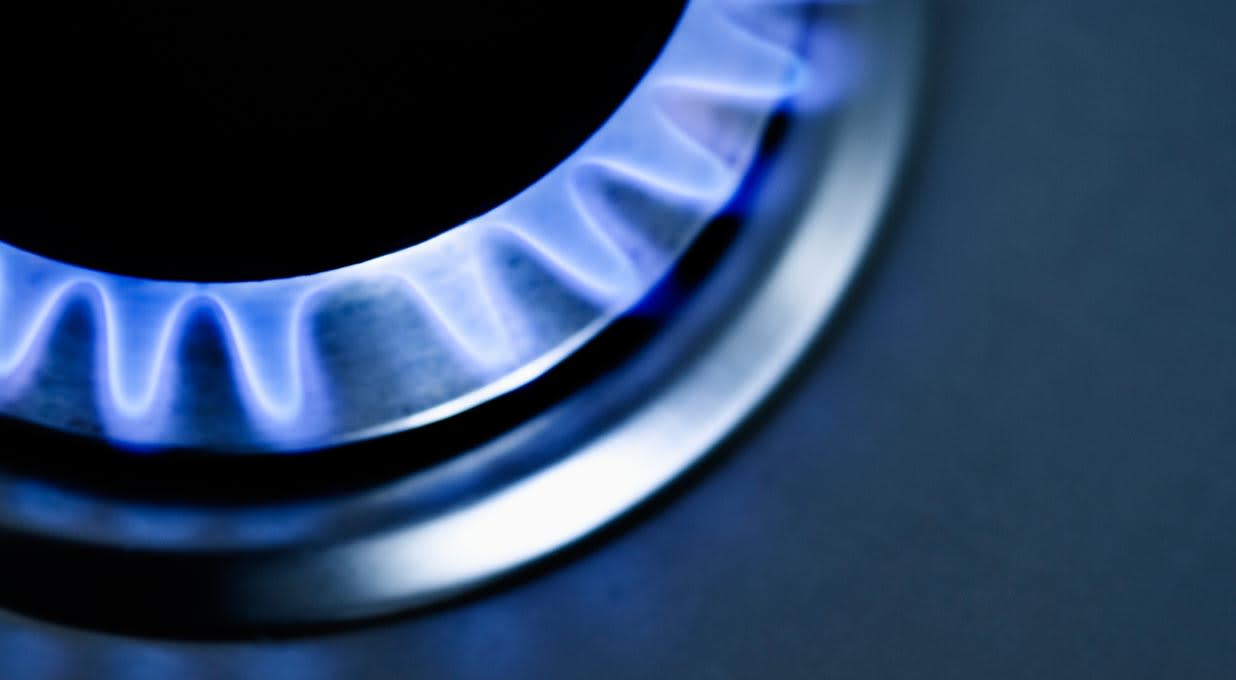Centrica’s first-half underlying revenue fell from £20.5bn to £13.3bn, driven by lower commodity prices and price volatility.
Underlying operating profit halved to £1.0bn. This decline was largely due to the previous year’s one-off cost recoveries being non-recurring, as well as lower market volatility which the group typically benefits from.
Free cash flow fell from £1.4bn to £0.8bn due to lower levels of cash generation by the business. Net cash was £3.2bn at the half-year mark.
Group profitability is expected to be “heavily” weighted to the first half of the year. All Retail energy supply and Optimisation businesses are expected to reach their medium-term profit targets in 2024, two years ahead of schedule.
An interim dividend of 1.5p per share has been announced, up 12.8%. The current share buyback programme has been extended by £200mn.
The shares fell 7.8% following the announcement.
Our view
British Gas owner Centrica's half-year results weren’t received well by markets, with the valuation taking a hit in early trading. But we don’t think that’s entirely justified.
Admittedly, underlying profits halved year-on-year as the energy prices and volatility simmered down to reflect more normalised conditions. But this was expected by the group and factored into its medium-term guidance. Taking a step back and looking at half-year results against these targets, the majority of Centrica’s businesses actually look on track to deliver these targets two years ahead of schedule.
Last year, the consumer-facing British Gas Energy (BGE) division benefitted from a significant one-off recovery of costs from prior periods. This provided a £500mn boost to underlying operating profits, making for some tough comparisons this half.
But looking through a wider lens, overall performance is showing signs of improvement. Customer numbers have stabilised after a period of outflows last year, and customer satisfaction scores are moving in the right direction. Add to that, profits are expected to fall in line with its medium-term target range of £150-250mn this year, ahead of schedule.
The recently renamed Centrica Energy is the group's trading arm, which can benefit from energy price volatility. It also buys and stores gas when prices are low, then waits for higher prices to generate and sell power back to the market, profiting on the difference. Profits here are down 40% too, broadly as expected. Despite this, it's still likely to be the group's biggest money-maker, even if energy prices and volatility dampen down further.
The Infrastructure division is responsible for the production of oil as well as the sale of power from its UK nuclear plants. Underlying performance has weakened in recent times, largely as a result of lower production volumes. That trend's likely to continue in the near term as big plans are afoot to turn this segment into a renewable energy powerhouse. But the transition's not going to come cheap or quickly, with between £600-£800mn per year set to be invested in the transition out to 2028, which could put a strain on cash flows if returns aren't as high or quick as planned.
The balance sheet was in good shape at year-end, with underlying net cash of £3.2bn. That means the recently reinstated dividend and extended buyback programme looks on solid ground for now. But remember, dividends can vary and are never guaranteed.
We're extremely impressed with how far Centrica's come in the past of couple years. The group now has a sizable cushion for any future bumps in the road. But as volatility and energy prices fall, some of the recent tailwinds will likely come out of Centrica's sails, and profit growth will likely moderate.
Environmental, social and governance (ESG) risk
The utilities industry is high-risk in terms of ESG, with European firms managing them better than others. Environmental risks like carbon emissions, resource use and non-carbon emissions and spills tend to be the most significant risks for this industry. Employee health & safety and community relations are also key risks to monitor.
According to Sustainalytics, Centrica’s management of ESG risk is strong.
It has a board-level committee overseeing ESG issues such as safety and environmental programmes. Services have been digitalised to help improve customer experience and retention, however, customer complaints at British Gas Energy rose by 5.9% in FY22. Centrica also reports ESG information in its annual report, which does not follow best practices.
Centrica key facts
All ratios are sourced from Refinitiv, based on previous day’s closing values. Please remember yields are variable and not a reliable indicator of future income. Keep in mind key figures shouldn’t be looked at on their own – it’s important to understand the big picture.
This article is original Hargreaves Lansdown content, published by Hargreaves Lansdown. It was correct as at the date of publication, and our views may have changed since then. Unless otherwise stated estimates, including prospective yields, are a consensus of analyst forecasts provided by Refinitiv. These estimates are not a reliable indicator of future performance. Yields are variable and not guaranteed. Investments rise and fall in value so investors could make a loss.
This article is not advice or a recommendation to buy, sell or hold any investment. No view is given on the present or future value or price of any investment, and investors should form their own view on any proposed investment. This article has not been prepared in accordance with legal requirements designed to promote the independence of investment research and is considered a marketing communication. Non-independent research is not subject to FCA rules prohibiting dealing ahead of research, however HL has put controls in place (including dealing restrictions, physical and information barriers) to manage potential conflicts of interest presented by such dealing. Please see our full non-independent research disclosure for more information.


